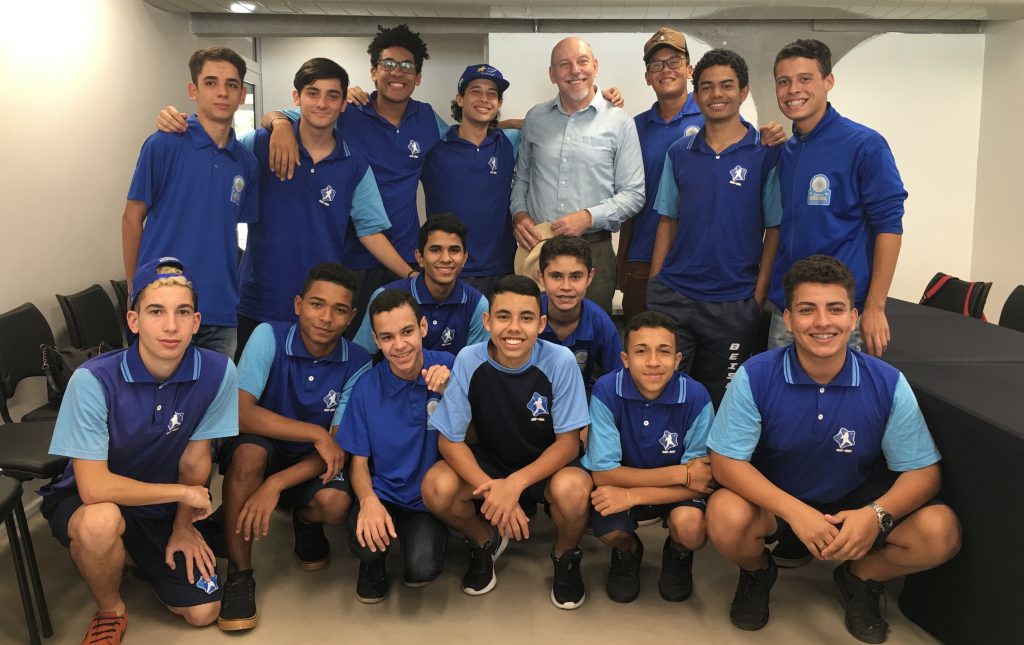
I visited the São Paulo SESC resort in Bertioga. I will write more later.
My picture shows a SESC program we (the Consulate) co-sponsored. You might call it “English learning through sports” – in this case baseball. The boys in the picture play baseball AND study English. I talked to the team for about an hour. They were a little scared to speak English at first, but a few minutes in they were asking questions. The English in their questions sounded good. I cannot properly judge how well they understood, but they seemed to laugh at the right times. None of the question was hard. They asked a few questions about the USA but rather more about things that I liked or did not like in Brazil. Since I am very fond of Brazil, I think they liked the answers. I dodged questions about my favorite Brazilian football team. Well … I told the truth, that I did not know enough about the teams to have favorites. They just thought it was a joke. The only significant pushback came when I told them that I did not like açaí, a palm fruit that, IMO, tastes like dirt. They all liked açaí, but as we talked we came to understand that we were talking about different things. They like a kind of sherbet. It is frozen and has lots of sugar and other flavors. That is okay. I used to get the purer version of it when I traveled in the Amazon. It is not so good w/o the added ingredients.
I enjoy these sorts of encounters and I think kids do too. The kids are very familiar with America through the media, but these kids, fairly underprivileged, are likely to have few contacts with living Americans. They are surprised, and I think they are pleased that an American diplomat wants to talk to them. I learn from the sorts of questions they ask and their reactions to what I say. It is one of those ground truth checks.
These contacts have ripple effects, in that they talk to their friends and family about the encounter and I know that there is staying power. I sometimes meet people who tell me about times we met a few years ago. During my years in diplomacy, I must have spoken to thousands of young people in these sorts of engagements. It is one of the parts of my old job I liked best.
A little background – I am not sure you could call SESC an NGO, since it has mandatory contributions by members of the service industry. SESC along with SESI (industries) and transport SEST (Serviço Social do Transporte). These were established by government fiat back in 1946 and the president of SESC is nominated by the president of Brazil. On the other hand, SESC is private and non-profit. Since it is supported by contributions by the commercial industry, it is not open to all Brazilians. It is a membership organization. Only workers in the covered industries and their families are eligible to participate.
SESC, SESI & SEST work in similar fashion, so I describe one with the stipulation that the others resemble it. Each Brazilian state and the DF have their own SESC and there is significant autonomy and diversity among them, not least because their budgets come from local industrial contributions.
We don’t have anything like SESC in the U.S. and I think that this system is unique to Brazil. They are sort of like a YMCA on steroids. They provide social services, health, education, leisure and cultural activities as well as programs to promote good citizenship. They have swimming pools, gyms & theaters.
